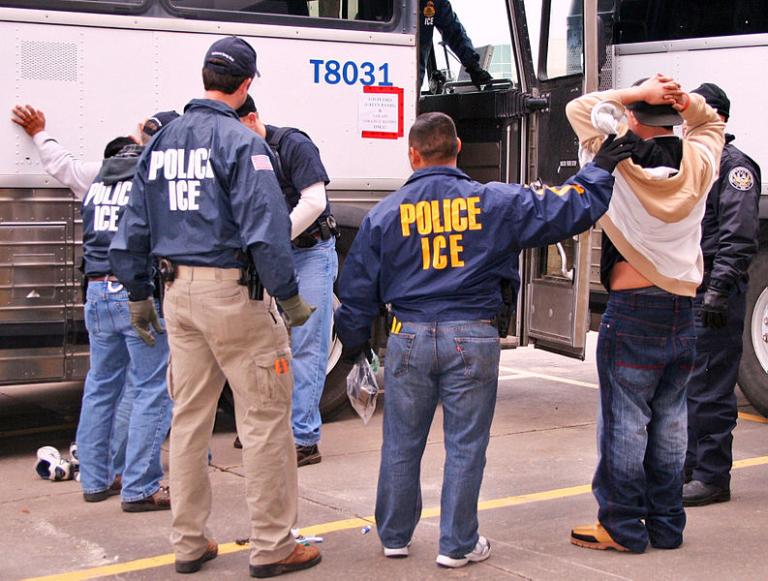Germany has a problem.
Turns out, the integration of 1 million + Muslim refugees is not so easy, when their, ahem, culture is different than yours — or, more bluntly, when their culture endorses the mistreatment of women in various ways.
And rather than admit this, the German media seemed to have simply decided that if they ignored the assaults on women in Cologne and elsewhere, they could wish them away.
Here’s the New York Times, “Reports of Attacks on Women in Germany Heighten Tension Over Migrants” (one commenter at the Times points out that even this headline attempts some distancing: it’s not the attacks, but the “reports” that are causing problems):
The tensions simmering beneath Germany’s willingness to take in one million migrants blew into the open on Tuesday after reports that scores of young women in Cologne had been groped and robbed on New Year’s Eve by gangs of men described by the authorities as having “a North African or Arabic” appearance.
Taking advantage of the New Year’s Eve street party, hundreds of young men broke into groups and formed rings around young women, refusing to let them escape, the authorities said. Some groped victims while others stole wallets or cellphones.
(Oh, and by the way, one woman reported a rape – but nevermind, apparently.)
In Hamburg, the police said 10 women had reported that they were sexually assaulted and robbed in a similar fashion on the same night. . . .
To prevent further violence in Cologne during the coming Carnival celebrations, when thousands of costumed revelers throng the streets for the beginning of Lent, which falls on Feb. 10 this year, Ms. [Mayor Henriette] Reker said that city officials would work to help women protect themselves and to explain the city’s attitudes and norms to newcomers.
“We will explain our Carnival much better to people who come from other cultures,” she said, “so there won’t be any confusion about what constitutes celebratory behavior in Cologne, which has nothing to do with a sexual frankness.”
And Reker is, as you likely know, in trouble herself for saying that, basically, it’s the women’s fault for not protecting themselves. (See this Deutsche Welle English-language report, for instance.) And it seems preposterous to imagine that you can solve this problem simply through a bit more “explanation.”
So, bad news, eh? And, even though other reports cite the police as saying that the perpetrators were (or are suspected to be) petty criminals who have long been causing them trouble in the area, it’s hard to believe that this is unconnected to the massive influx of migrants/refugees.
But, much as everyone’s ready to jump on these reports as proof that Merkel was a fool and should immediately close the border and expel all those who have arrived, there is no simple answer.
Why, after all, did Merkel make that initial, fateful announcement that she would allow individuals to claim refugee status in Germany, rather than in the first EU country they arrived at? Wasn’t it meant to relieve the pressure on places such as Greece and Italy, who were in no position to handle the asylum-claimants?
The facts are confusing. Certainly, New Year’s Eve sees plenty of local residents coming into the city to celebrate, arriving at the train station either on the local trains or the subway. But the reports are that the Bahnhofvorplatz — the city square between the cathedral and the train station — became the site where mainly North African and Arab men gathered to drink and shoot off firecrackers and rockets, with police clearing the crowd as midnight approached, not because of these attacks, which they weren’t aware of, but because the drunkenness and fighting and rocket-firing was getting out of hand; this took an hour but ultimately they did clear the square, as well as the train station itself, which had become equally chaotic, with fighting. The article cites a 12-year train station employee as saying, “it’s always full, but this year the atmosphere was entirely different,” with “far more foreigners than usual.”
Now, this is right in the center of town. We’re not talking about a “no-go zone,” a ghetto-like area in which police have resigned themselves to just letting criminals take over because they get chased out by hostile residents, as reportedly is the case in some areas of metro Paris, Brussels, Molmo. At the same time, though, this is hardly an idyllic location. Der Spiegel reports
Taschendiebstähle sind ein massives Sicherheitsproblem in der Stadt am Rhein. “In Köln haben wir 12.000 Delikte im Jahr”, sagte Kriminalhauptkommissar Günther Korn zu SPIEGEL TV. “Das sind 5000 mehr als 2007.” Und das obwohl die Beamten in dem Zeitraum dreimal mehr Trickdiebe gefasst hätten als 2007. “Wir können gar nicht so viele Täter festnehmen wie nachwachsen”, so Korn. Die geringen Strafen, die in Deutschland für Eigentumsdelikte verhängt werden, schrecken offenbar nur wenige Täter ab.
Pickpockets are a massive security problem in the city on the Rhine. “In Cologne we have 12,000 offenses a year,” said Chief Commissioner Gunther Korn to Spiegel TV. “That’s 5,000 more than in 2007.” And that even though officials have arrested three times more thieves than in 2007. “We can’t apprenhend as many criminals as spring up,” said Korn. The small penalties for property offenses apparently deter only a few criminals.
Or something like that — pardon the translation. But the gist of it was that these men were not new arrivals, but a bad crowd that’s been an ongoing problem. It’s hard to believe, though, that this sudden escalation was unconnected to the massive numbers of new arrivals. And Korn doesn’t say how recently the problem escalated, either.
And not just Cologne but also Munich and presumably other German cities have Karneval/Fasching celebrations coming up — giant street parties which make New Year’s Eve look small in comparison. Heck, one year when we lived in Munich, in the midafternoon I took the kids (or maybe just the younger one, but he was in a stroller) to see what the fuss was all about, and it was wall-to-wall people. I can only imagine what the scene looked like that night. And such an event absolutely depends on the crowd being well, civil — a repeat of even just the reports of pervasive theft, let alone the molestation of women, would destroy the event.
And, it should be pointed out, there were no such reports coming from Oktoberfest, despite fears that the combination of ever-flowing beer and girls in flirty dirndls could spark, er, misbehavior on the part of the newcomers.
And despite the initial lack of interest, the police are, at least in appearances, taking this very seriously. And, although broadcaster ZDF had to apologize for initially not reporting on this, there is no extensive coverage at the local news sites.
So Germany has a long road ahead.
Does the government — at all levels — recognize that they can’t blow off the issue of crime? That they can’t wish away the problems that come with massive numbers of new arrivals, many of them wholly uneducated, and coming from cultures in which women are treated as inferiors and considered deserving of abuse if they don’t follow Islamic codes of behavior or even for no reason at all?
Do they recognize that they have to sort out the bad apples, both those who have no grounds for an asylum claim and those who are refusing to play by the rules (the “rules” being “work as hard as you can to learn German, learn a skill, get a job, etc.”), and that they have to expel those bad apples as quickly as possible, as well as those who have refused to register in the first place?
Are they even able to implement all their good intentions, and is it even a feasible task to do so?
These are all long-term questions. For all our schadenfraude and I-told-you-sos, it is simply too soon to tell the outcome.













